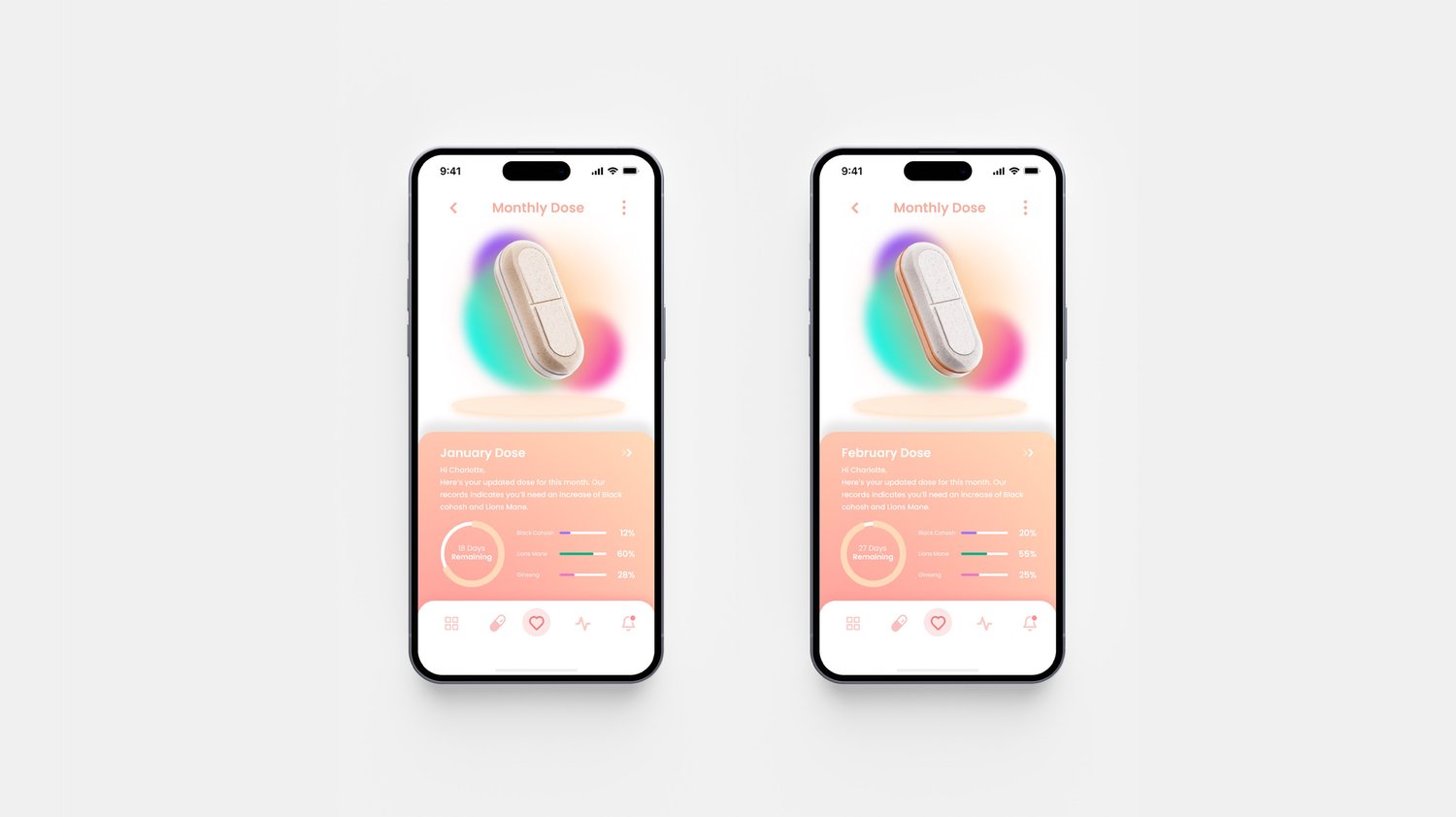Hot flashes, mood swings, insomnia — menopause affects everyone differently. Since there's no one-size-fits-all solution, industrial designers at Morrama dreamt up Luma, a subscription service that delivers monthly boxes of pills tailored to each user and the issues they're currently facing. The supplements contain varying levels of Black Cohosh for hot flashes, Lion's Mane to reduce brain fog and Ginseng to increase libido, plus THC where legal.
Luma works with an app that tracks the subscriber's symptoms, lifestyle and preferences through smartwatch and sensor data, as well as manual inputs. The app then uses AI to analyze the data and create a personalized recipe for each user. That formula is 3D printed into a single pill that makes taking the ingredients easy and convenient.
Not an actual service that consumers can sign up for now, Luma is a concept created by Morrama to explore how people could be supported while experiencing menopause symptoms that impact their quality of life. While the concept and design are the intellectual property of Morrama, the London-based consultancy states: "we would be more than happy to hand this over if we knew the products were going to be developed."

Trend Bite
Other startups — including Vitl and Rootine — offer customized supplements based on personal needs or DNA tests. But when it comes to a stage of life with as much impact as menopause, it makes sense to launch a targeted, comprehensive service.
Luma demonstrates how brands can — through increasingly sophisticated methods — use technology to create personalized and meaningful experiences for their customers. Luma isn't just selling pills but a solution to a problem affecting millions of people worldwide.
As Morrama points out: "This market is not new. Women have been going through menopause for millenia. But Apple famously forgetting to include the basic functionality of period tracking into their health app proves that male Silicon Valley billionaires have been so busy focusing on their own health and longevity that women's needs have been overlooked. The result is a vast untapped market and we are about to see it explode."
Join 100,000+ future-focused professionals in 180 countries already receiving our free trend updates.
Select your country